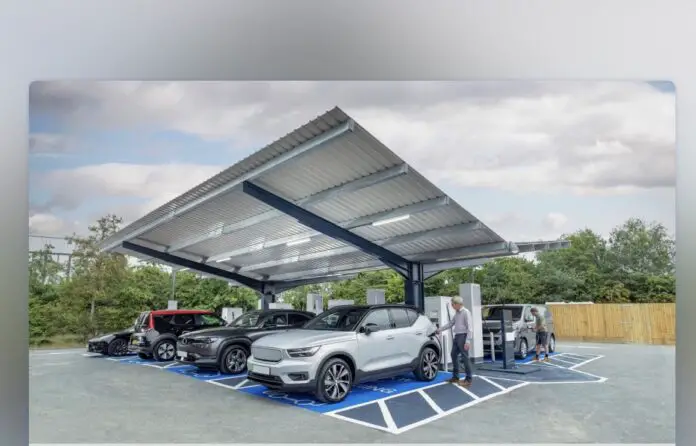Despite a fall in wholesale energy prices the cost of charging an electric vehicle (EV) using public rapid and ultra-rapid chargers remains stubbornly high, new data from the RAC shows.
In sharp contrast to the remarkably low prices enjoyed by drivers who are able to recharge their vehicles at home, the price of using the very fastest chargers, which are relied on by drivers making journeys beyond the range of their vehicles, is virtually unchanged since the start of the year.
The average cost of a rapid pay-as-you-go charge, using chargers with power outputs between 50 and 149 kilowatts, currently stands at just under 80p per kilowatt hour (79.19p per kWh), virtually unchanged on the start of the year (79.55p) but up 4% since a year ago and up 28% on two years ago. Drivers today therefore pay £41.18 to charge a family-sized electric car from 10% to 80%**, adding a range of around 170 miles.
Using the country’s fastest ultra-rapid chargers – those with a power output of 150 kilowatts or above that can charge many EVs in minutes – costs a similar 77.67p per kWh, making a 10-80% charge cost £40.39.
The RAC’s research uncovers the extent to which drivers unable to charge at home are paying a significant premium over those that can. Off-peak home charging can cost just a seventh of the price of doing so at an on-street lamppost or bollard charger where these exist (7p, compared to between 49p per kWh***), and less than a tenth of the price of using a much more common rapid or ultra-rapid charger (7p, compared to 80p and 78p per kWh)







